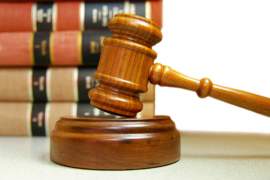
The Short Biography of John Hancock

Popular In Constitution
Purpose Of Lifetime Appointment And Pros And Cons Enumerated Powers Bicameral Legislature Background Article 3 Of The Constitution We The People 1st Amendment Who Wrote The Constitution Judicial Review Equal Protection Clause 5th Amendment 10th Amendment Three Fifths Compromise
John Hancock was a prominent statesmen and an influential supporter of the American Revolution. Serving as Governor of Massachusetts and President of the Second Continental Congress, Hancock was viewed as an active Patriot necessary for the establishment of a free nation.
John Hancock was one of the wealthiest Founding Fathers and decided to use his considerable assets to unify colonialists when Britain's reign became overrun with despotic action. Following Britain's victory in the Seven Years War the country quickly amassed a considerable amount of debt. To alleviate the financial burden, Britain attempted to impose a series of unjust taxes on the colonies. The Sugar Act of 1764 and the Stamp Act of 1765 (as well as other taxes) were enforced to levy taxes on consumer staples, but were quickly revolted against by colonialists. American settlers were not represented in Parliament; only the colonial assemblies (where the settlers were represented) could levy such taxes. John Hancock and the majority of settlers thus viewed the taxation methods of Parliament as a direct violation against colonial rights.
During this juncture, Hancock was not a politician, but instead, a dominant wealthy figure who viewed the taxing efforts of the British as immoral, as well as economically unsuitable. As a result of his public outrage over the taxation methods, John Hancock grew wildly popular in the Boston area.
Following the rejection of the Stamp Act, British
Parliament attempted to further control the colonial import and export systems.
The Townsend Acts were passed in 1767 and established new rules on imports to
prevent smuggling and increase taxation on all foreign imports. Colonials again
viewed these maneuvers as unjust, for British troops would commonly enter
American ships without warrants and seize imports or place outrageous taxes on
such goods.
John Hancock, who was obscenely wealthy, commonly stationed ships in Boston and surrounding ports. When the Townsend Acts were passed, Hancock's ships were routinely searched and unjustly taxed with prejudice. The most historically significant act of abuse by the British on John Hancock occurred on his ship, Liberty. Customs officials boarded Liberty without proper documentation and threatened to fine or imprison Hancock for carrying contraband items, such as wine, in bulk. Boston settlers who saw the abusive actions immediately intervened by storming the British agents and beating them. As a result of the Liberty situation, John Hancock led an uprising that eventually barred the obtainment of all British goods and sparked the creation of the Declaration of Independence.
John
Hancock's following was not obtained through fiery protest or physical
demonstrations of power, but instead through philanthropy and by treating his
fellow citizens with class and respect. The people of Boston looked to him as a
leader and eventually entrusted him with the overseeing of the Declaration of
Independence.
With support in Massachusetts and seemingly
endless financial backing, John Hancock was elected President of the
Continental Congress in 1775. Shortly thereafter in 1776 John Hancock was the
first to sign the Declaration of Independence. Hancock's signature was large
and perfectly scripted. He wanted King George of the British Parliament to be
able to read his name without the use of glasses.
The Declaration of Independence marked the United States’ separation from the reign of the British Monarch. Hancock played a vital role in the creation and drafting of the historical document. After the Declaration of Independence was instituted and America won its freedom in the Revolutionary War, John Hancock became very ill and was forced to take a leave of absence. Hancock stayed in Boston where he served as Governor until 1785.
Due to illness and old age, John Hancock was not fully immersed in the drafting of the Constitution, but he still voiced his disfavor with the Articles of Confederation because of a failure to include the Bill of Rights. When the following Constitution was sent to the states for ratification, Hancock again was disappointed with the empowerment of a central government. Gravely ill at this point, Hancock agreed on the ratification and proved to be the deciding influence for the adoption of the new Constitution.
NEXT: Patrick Henry





















